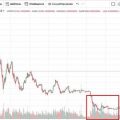An essay on historical parallels between the devaluation of the denarius and the decline of the mighty Roman Empire withon the one hand, and the current situation of the United States and their monetary policy on the other.
Having once gone to the city square to get a weekly supply of flour and other dry products, Lucius Aurelius noticed that the denarii in his wallet seemed to weigh less than usual.
And even stranger, when he arrived at the square to greet the merchant Titus Valery, it turned out that he had raised the prices of all his goods.
“Tell me, my dear, what do I owe to such an unpleasant surprise?” - Asked Lucius Aurelius.
With a characteristic gesture rubbing his thumb on the index and middle, the merchant answered:
“I assure you, sir, that I would not raise prices of my own free will.” But take a look at denarius in your wallet. Didn’t you notice that they began to weigh less?
Aurelius rang denarii in his wallet and really once again noted that they weighed as if lighter than usual. Then, raising one coin on his outstretched arm, he asked:
“But look: do you not see on this denarius the same face of our emperor Nero?” You do not want to say that today this coin costs less than yesterday and on all subsequent days?
Valery smiled:
“Don't you know?” I need to pay caravans going from Capernaum to Caesarea, and now they give me much less goods in exchange for denarius.
“But didn’t you hear that Caesar himself considered it necessary to change the balance of our sacred currency, but that denarii should cost no more tomorrow than yesterday and all subsequent days?”
“While Caesar is alive, I swear that your denarius today costs no more than yesterday, and indeed: tomorrow it will cost much less.”
Reluctantly, Aurelius paid a little more denarii for the same amount of flour and other goods necessary to maintain the quality of life of a civilized Roman.
He did not know that in just a few years, Rome could be called anything, but not civilized.
Sunset of a powerful empire
At its peak, the population of the Roman Empire totaled up to130 million people, and its territory extended to 3.8 million square meters. km of the ancient world. The Romans built more than 80,000 km of roads, as well as aqueducts, apartments and amphitheaters.
For hundreds of years, the Roman Empire occupied most of the known world and set the standard for civilization, which all Europe envied.

Few diplomatic arguments could compare convincingly with a trireme with a Roman battalion on board. (Photo: https://www.romae-vitam.com/roman-ships.html)
The economy of the Roman Empire was built on trade. From grain, beef and olive oil to iron, silk and spices - thanks to the established trading network, the Romans had everything they could wish for.
The Roman legal system ensured the reliability of treaties, and the army ensured security and law enforcement.
But as the empire grew, so did its spending.
Although the population of Rome was only 1 million people, administrative, logistical and military expenses (in particular, to contain unrest and uprisings) continued to increase.
Denarius less weight?
In the first 220 years of the Roman Empiredenarii, silver coins, were the main unit of calculation and the main trading currency. Initially, denarii had a very high level of purity - about 4.5 grams of pure silver per coin - and were used throughout the Roman Empire.

«Caesar Caesar». (Photo: Design Pics/Getty Images)
But with a limited number of applicantsan empire of silver and gold, Roman spending was limited by the number of denarius that could be issued, which seriously limited the ability of the Roman emperors to finance personal projects or expensive military campaigns.
Therefore, Roman officials came up with«brilliant» a way to put more currency into circulation: by reducing the silver content of each denarius, the Romans could mint more coins. Yes, this reduced their quality, but for the emperor it meant getting additional money literally out of thin air!
Money out of thin air
In the time of Emperor Marcus Aurelius denariusconsisted of approximately 75% silver. But the practice of reducing the quality of coins was so fond of the Roman emperors that under Emperor Gallien, the silver content in denarius was 5% of the force. This imperial habit had serious consequences for the trade on which Rome was so dependent.
Whereas denarius was previously considered the “gold” standard and accepted throughout the empire, a gradual decline in the quality of coins led to an increase in doubts about their value and value.
Over time, merchants throughout the Roman Empire began to ask for more denarii for the same amount of goods, or they demanded gold instead of Roman coins, which led to inflation and a loss of confidence in denarius.
And although the decline in the value of denarius and subsequentthe decline of the Roman Empire, it is customary to blame the emperor Nero, it took a very long time for the real consequences of reducing the quality of coins to manifest themselves.
Adding more to circulationworse quality denarii did not contribute to increasing welfare - on the contrary, this ultimately reduced the income of ordinary people, since now they had to pay more denarii for the same goods and services.
More money, more problems.
As inflation rose, workers demanded higher wages to offset the decline in the purchasing power of the currency.
By 210 A.D. the Roman emperor Caracalla raised the salary of his soldiers by 50% only to keep up with inflation.
And by 265 A.D. only 0.5% of silver remained in denarii, which led to a sharp increase in the price of goods by 1000% throughout the country.
By the end of the 3rd century AD, trade is the basisthe economy of Roman civilization - practically stopped due to the loss of any significant means of exchange, surviving mainly only at the local level and with the predominance of an ineffective barter method.
History lessons
It is the history of the depreciation of the Roman currency that probably carries valuable lessons for the present century.
Many critically evaluate Bitcoin's abilityreplace the dollar, because the dollar is the world's reserve currency. In addition, a significant part of international trade is denominated in dollars, as well as all world commodities.
But you know what? The denarius also occupied the same place in international trade. From the Atlantic Ocean to the Black Sea, the denarius once embodied the very concept of a sustainable currency and a means of preserving value.

Another day in the shopping center of Ancient Rome. (: https://www.planetpompeii.com/en/blog/any-day-in-ancient-rome-the-daily-life-of-a-roman.html)
At denarius, you could buy a roll of silk or a kilogram of spices and prices were stable.
Merchants were sure that they would be able to purchase the same amount of goods and services tomorrow at the denarius that they received for their goods today.
It is no secret that today the dollar is not worth as much as, say, five decades ago.
And unlike denarius, in which at leastthere was some kind of precious metal, the dollar since the Nixon administration was not tied to gold or anything that has real value.
However, the dollar was chosen as the basecurrency at the conclusion of a global free trade pact, secured by US military power and tight monetary policy of the United States, and which today is under increasing pressure.
What happens if you ignore trade
Ancient Rome is an example of globalization in miniature. Having created a system of laws that must be respected throughout the empire, and built a strong army to enforce these laws, the Romans built on this basis an unimaginably rich and prosperous state.
Since the Romans were willing to spend money on protecting trade routes and enforcing their laws, entrepreneurs were willing to do business with each other, and trade flourished.
Similarly, the United States is today the mostthe richest country in the world because their military power ensures the openness and security of trade channels. The United States provides freedom of navigation in the South China Sea by strengthening its commitment to the rule of law and free trade.

«Have you called security?» (: US Navy, in the public domain)
But with the increasingly protectionist policies of the Trump administration, with a one-sided increase in tariffs and trade barriers, free circulation of goods and services is no longer a given.
America's reputation as a reliable counterparty for protecting global trade is also not so obvious.
The stinginess of its reactions could be envied by NATO. Unwillingness to interfere in international relations and exit from many global hotbeds of tension creates a vacuum that will have consequences for the dominance of the dollar.
Protectionism itself may havefar-reaching economic consequences, but in combination with a move to strengthen the executive branch, which intervenes in monetary policy and casts doubt on the independence of the Federal Reserve System, the situation is becoming much more serious.
Who runs the Fed?
The last two candidates nominated by the Presidentfor appointment to the Federal Reserve - founder of the «Club for Growth» Stephen Moore and former presidential candidate and pizza chain executive Herman Cain are Trump loyalists who could undermine the Federal Reserve's apparent independence and interfere with its statutory mission.
As far as can be judged from the outside, the president is notexperienced no hesitation or uncertainty, requiring the Fed to establish a more convenient monetary policy for him. Speaking with reporters at the White House on April 5, Trump said:
«Personally, I think the Fed shouldlower rates. In my opinion, they hinder our development. There is no inflation. Regarding quantitative tightening, I would say that what we really need is a quantitative easing program.
And even if Trump's nominations are notwill be held in the Senate (translator's note: Stephen Moore later refused the nomination), this does not negate the growing signs of weakness in the US economy, which may lead Fed Chairman Jerome Powell to maintain existing rates or even reduce them.

Thick walls, it seems, are not able to protect against political interference.
And such a policy seems to fit intoPresident Trump’s line of action, even if he didn’t openly express his demands, and allows the president to record on his own account the victory in the issue of influencing the US monetary policy, even if he did not win this victory.
But, more importantly, for the rest of the world it isit will be a signal that the Trump administration can now, at its discretion, manage monetary policy from the Oval Office, undermining the independence of the Fed, and achieve long-term economic goals through a change in monetary policy, from which the question arises: can it still be considered for granted the separation of powers in Washington?
Institutional idiocy
One of the hallmarks of the United States, rightfully the most admired in the world, is the strength of its institutions and its system of checks and balances.
Thanks to the strength of American institutions, the dollar has managed to become a world reserve currency and a unit of exchange in which almost all world trade in raw materials is denominated.
But the threat to the dominance of the dollar is not only the Trump administration.
Rising stars from Democrat controlledHouse of Representatives, such as Alexandria Okasio-Cortes, have begun to put forward populist proposals for free education and health care that would have to be funded by higher taxes. The Roman Empire was forced to fight similar initiatives just before the fall.
The depreciation of denarius alone could notto lead to the fall of the Roman Empire - this was due to a combination of factors such as depreciating money, rapid tax increases and hyperinflation, which, in essence, destroyed Roman trade and deprived the empire of economic prosperity.

Reducing the precious metal content in coins at home. («The Alchemist Heats a Pot», David Teniers the Younger (1610–1690), oil on canvas)
The sloppy monetary policy of the Fed itself is unlikely to lead to a fall in the dollar, but amid increased protectionism and higher taxes, everything becomes possible.
The reality is that the United States is notwill be able to turn a blind eye to these problems forever - at some point Washington will have to put up with its wastefulness, and the Americans will have to swallow the bitter pill of raising taxes.
However, if the US maintains a levela global presence, ensuring compliance with global standards, respect for international institutions and the rule of law (backed by the power of American weapons), the world is likely to continue to accept the dollar as a reserve currency.
It is the reluctance of the current US administration to participate in the settlement of global conflicts that is likely to cause the cost of the dollar the most damage.
Central banks around the world have already begun to reduce their dollar reserves and redistribute funds in favor of other currencies, including the Swiss franc, Japanese yen, euro and even Chinese yuan.
Some central banks have also increased their foreign exchange reserves.
Everything plays in favor of Bitcoin.
Of course, we have already seen all this before - as a superpower gradually falls into decline, not under the influence of external forces, but because of its own mistakes.
President Abraham Lincoln once said:
«Where might the danger come from for ourhomeland? I will answer. If our country is ever threatened with real danger, it will have to arise among us; it cannot come from outside. If the United States is destined to disappear, then we ourselves must be the authors and perpetrators of this disastrous scenario. As a nation of free people, we must survive any time or die as a result of a suicidal act.
America will never be destroyed from outside. If we fail and lose our freedoms, it will be because we destroy ourselves.
Empires never fall into decay under the influence of one factor - this is always due to a combination of reasons, which in its entirety can be seen only retroactively.
Wasteful politics, weakening andthe dissolution of institutions of power, the undermining of the rule of law, one-sidedness and protectionism - all this contributes to the gradual and systematic weakening of the system.
Against this background, what is the role of cryptocurrencies and specifically Bitcoin?
Never before has America encounteredwith so many fundamental challenges in so many directions and never before has this threat been directed against key institutions of American democracy.

The design of Greg’s new mousetrap required some refinement. (Photo: Dmitry Moraine on Unsplash)
It is unlikely that anyone who read Bitcoin's whitewater may doubt that the purpose of creating Bitcoin is not to concentrate wealth in the hands of a select few.
In the end, Bitcoin was conceived as direct.the answer to what was regarded by the author (s) as a vicious and unjust system concentrating power, wealth and influence in the hands of the world elite, and part of the path to redistributing this power was to create completely new means of transferring value, devoid of flaws inherent in existing institutions .
This is the problem with blind faith in state institutions: they can be destroyed.
Institutions of power are by definitioncentralized and represent points of failure that can be taken advantage of by the president or the political system. Whereas Bitcoin, being a decentralized system of independent and interchangeable nodes, does not have a single point of failure.
The Bitcoin deflation curve and the schedule for new coins also contrast sharply with the inflationary nature of fiat currencies and, in particular, the dollar.
And since bitcoin is denominated in dollars, it is clear why many people exchange part of their dollars for bitcoins, just as someone buys gold to protect themselves from inflation.
Therefore, although I do not assume thatThe American empire will collapse in the foreseeable future, we have real reasons for concern about the global world order, which survived a century of wars and attempts at globalization. Like the fall of Rome, this can take a very long time.
Rome was not built in one day and its sunset did not happen overnight either.
</p>



